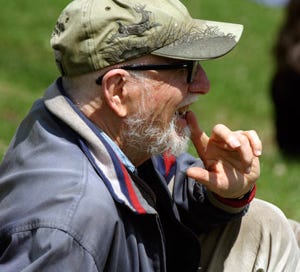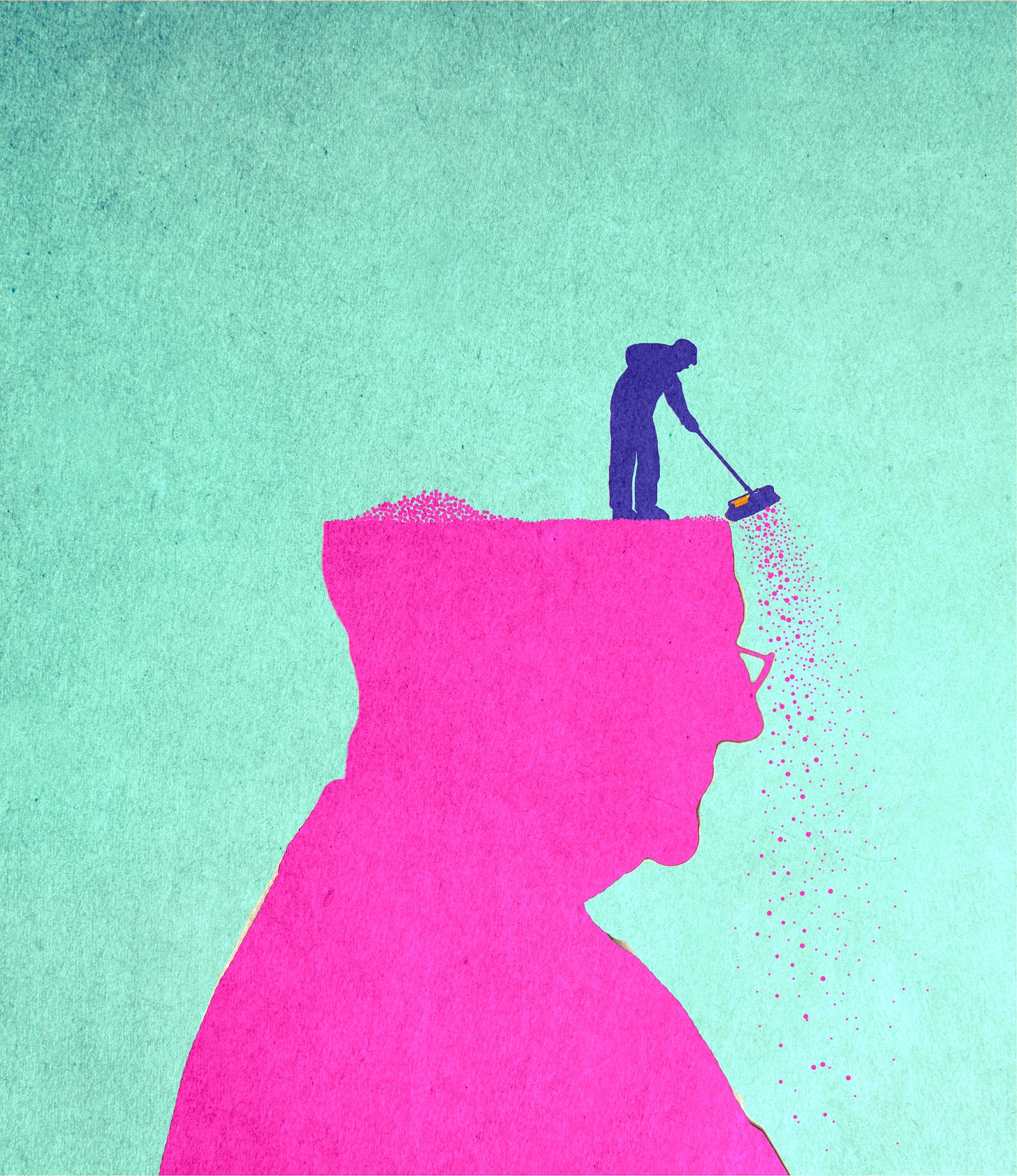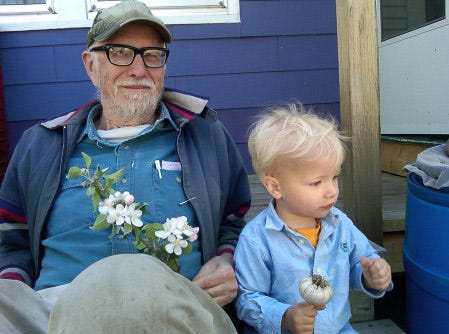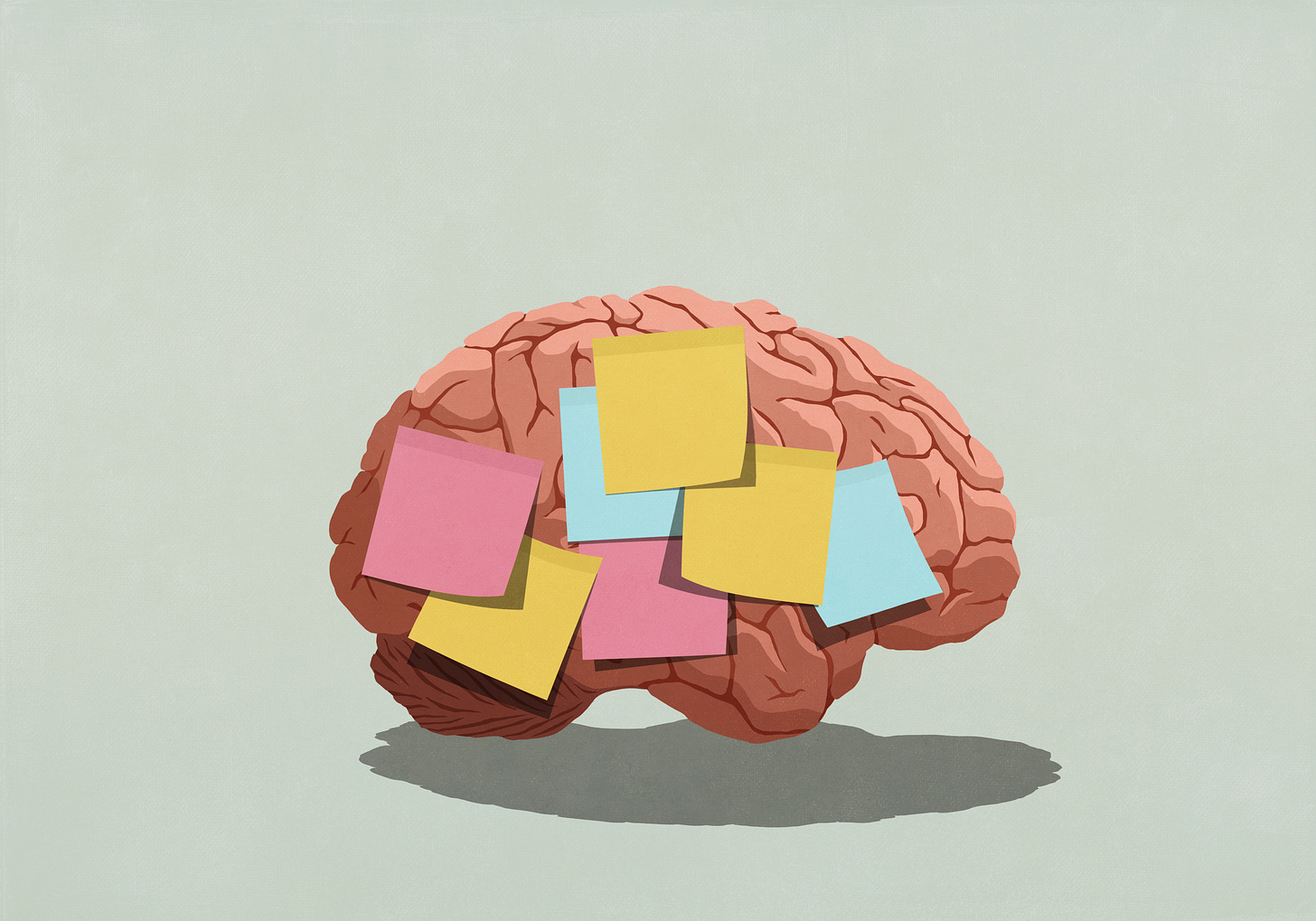[This essay is adapted from the book Plain Radical: Living, Loving, and Learning to Leave the Planet Gracefully, about the political/intellectual life of my late friend Jim Koplin. Jim was my role model for how to engage feminism as a man. For more information on him, go to https://robertwjensen.org/category/jim-koplin/.]
Jim Koplin
My friend Jim Koplin and I bonded so intensely as friends in part because of a shared experience of a childhood defined by terror, from the very beginning (see “Unduly Abused”). Unlike Jim, I cannot remember. Jim seemed to be able to recall every detail of such a dangerous childhood and chose to put those memories aside. It was as if Jim had kept a ledger that contained every experience, duly noting every act of being unduly abused. Every incident went on the books. For me, every incident went into a black hole.
The bond I formed with Jim had something to do with shared experiences growing up—from one’s earliest memory, from the time before a child has language to remember with, from the time before conscious memories form—in terror, and surviving that terror. Here’s the story of my childhood:
[blank space]
My childhood is mostly blank. During my childhood I was mostly mute. I existed, and I spoke. But I don’t remember very much of that existence and I don’t remember speaking very often. For now, all I can do is mark what isn’t there:
When Robert Jensen was a child, ______________.
It’s possible that later I will be able to fill in the blank. But for now, the story has to move forward with lots of blanks.
Blanks lead to questions. When I talk about this, people ask …
What do you mean when you say you can’t remember?
Some years are a complete blank, others are fragmented and sketchy at best. I have, literally, no recollection of the first six years of my life. From age six to eleven, it’s a jumble of disconnected fragments. Starting at twelve, I can start to accumulate enough fragments to piece together a tentative narrative, albeit with big gaps. And there’s one really big gap when I was fifteen, my sophomore year in high school; that year is completely blank. Starting with the year I was sixteen, I have something that seems to approximate the kind of memory most people taken for granted.
Why is it so hard to remember?
I assume, based on what I’ve read and how this feels, that I don’t remember because pretty bad things happened, fairly regularly, when I was a kid. Psychologists call it dissociative amnesia.
If you can’t remember, how do you know pretty bad things happened?
Because some things that are inaccessible to the conscious mind still live in one’s body and come out in other ways. The body keeps the score, to borrow from the title of a book on trauma.
I used to envy Jim’s ability to remember. He had decided to close the ledger, but he had the ledger. He had the choice whether or not to open it, to look back if he chose to. When memories are stored in a black hole, those memories go in, nothing comes out. Maybe I can choose to go into the black hole to retrieve them. But I mostly believe modern physics—if light can’t escape from a black hole, I don’t think I have much of a chance.
Back to the questions.
What if things weren’t as bad as you imagine?
My fear isn’t that things were as bad as I imagine, but rather that it was worse than I can possibly imagine. Not knowing is hard, but knowing—depending on what there is to be known—may be harder. When I was at first starting to understand all this, Jim raised this possibility in a letter: “Once you know what happened to you, you will have to live with that knowing. I’m not so sure that living with the knowing is better than living with the not knowing.” (December 23, 1994)
Jim with Oskar, the child of a friend
Jim reiterated that advice with lines from Tony Cade Bambara’s novel The Salt Eaters, in which the healer Minnie Ransom asks, “Are you sure, sweetheart, that you want to be well? … Just so’s you’re sure, sweetheart, and ready to be healed, cause wholeness is no trifling matter. A lot of weight when you’re well.”
Indeed, a lot of weight when you’re well, but also a lot of weight when you’re not. It seems to me that life is a lot of weight no matter what I choose. Black holes are heavy.
Does the black-hole metaphor seem too dramatic? Let me try again.
My memories of childhood are behind a locked door. There’s a key, but it’s behind the locked door, too. So, if I want to get into that room, I have to decide how to get in. I can pay a locksmith to open the door, which takes time. I can bust down the door. Or I can burn the house down.
One more question.
Why don’t you just let it go?
Let it go? I’ve been dragging this around my whole life. Do you think I chose that? Do you think I get to choose any of this? It it’s sounds weird, that’s because it is. Here’s how weird this can get.
I was reading a story about a Supreme Court case involving the rules under which victims of child pornography (what we now call child sexual abuse material) can seek restitution from people who are convicted of viewing images of the abuse. Whatever the legal issues, the important story is the horror of what the woman who was used in the pictures has endured in her life. Not only did she have to live through the abuse that is recorded in the photos, but the photos live forever. It’s a kind of trauma that challenges our ability to empathize. We can try to understand, but we really can’t, and we aren’t sure we really want to. All we can do is wish there were a way to magically destroy every image and then magically wipe clean the minds of everyone who ever saw the photos. And then wipe our own minds clean of the knowledge that the pictures ever existed, that idea of taking such pictures ever existed.
But here’s the odd thing about my reaction to the story: I had a strange twinge of envy. I thought to myself, “I wish there were pictures.” That’s twisted, but I thought, “She is lucky because she has proof.” I don’t really wish I had pictures, of course. I just wish I knew. I wish I had more than body twitches and panic attacks, more than a regular foreboding feeling of someone hovering over me, more than dream fragments of being pinned down, more than an ongoing fear that I may at any time dissociate completely and never find my way back. This gets scary. Here’s how scary this can get.
A few years ago, while traveling, I couldn’t sleep and started pacing the hotel room, growing more and more frightened of something, of someone, of some threat that seemed present in what I knew to be a room in which I was alone. As I paced, I moved toward the corner of the room, increasingly agitated and crying. Then I must have fallen asleep. When I woke up I was curled up in that corner, with no clear sense of what had happened beyond that short description. I was nineteen the first time I dissociated like that, and it happened again when I was in my forties. This was the third incident in my adult life, each time coming without much warning. Most days, at some point during the day, I wonder if this will be the day for a fourth time, from which I don’t return.
Things happened to me when I was a child. They happened over and over again, for a long time. I know that much, as much as I know anything about myself.
That’s the hardest part of black holes that hide behind locked doors: I know things to be true that others say I can’t know for sure, and I know about things that I may never be able to figure out. I think I know. I doubt what I know and what I don’t know. All of this swirls around in my head, leaving me wondering whether I can even know that I am the person I think I am. On bad days, I wonder whether I am really a person.
Robert Jensen, an Emeritus Professor in the School of Journalism and Media at the University of Texas at Austin, is the author of It’s Debatable: Talking Authentically about Tricky Topics from Olive Branch Press. His previous book, co-written with Wes Jackson, was An Inconvenient Apocalypse: Environmental Collapse, Climate Crisis, and the Fate of Humanity. To subscribe to his mailing list, go to http://www.thirdcoastactivist.org/jensenupdates-info.html








Robert Jensen is a man of integrity, compassion and intellect and I admire him greatly. He manages to take his childhood wound and turn it into activism regarding pornography, feminism and peace mongering. He seems to be in his early sixties and at this point in his life, does he really want to excavate his past? Yes, dissociation is a sign of severe abuse and he has already taken the first steps by facing the amnesia and locating the abuse in his family and above all in his father. He has a life he can be proud of living and a body of work deserving respect and praise.
I too had a black hole but deprogrammed over decades. It was brutal but I had an extensive support system and youthful good health. What's worse than the black hole is extensive system of memories, which most people don't want to believe because it implicates an extensive network of organized crime.
Thank you to Robert Jenson for sharing such a deeply personal story. I am awestruck by his ability to be such a good person despite having had such a traumatic childhood. I truly believe that such traumas can be overcome - our being is always striving for wholeness. The amnesia that he experiences has been his best way of surviving up to now, but I hope that he can find the right therapy (and there are many ways of addressing trauma, see Thomas Hubl's work, for example).